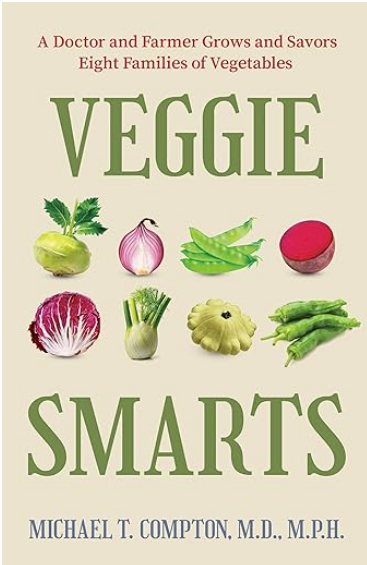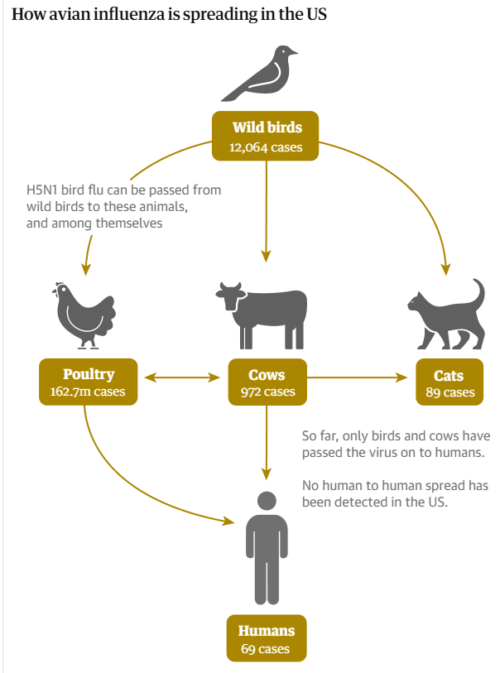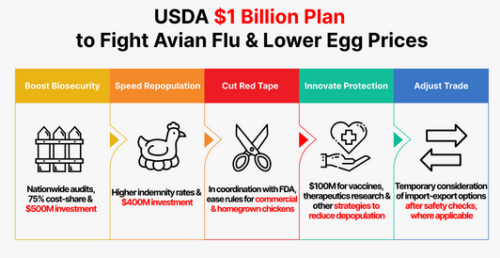Michael T Compton, MD, MPH. Veggie Smarts: A Doctor and Farmer Grows and Savors Eight Families of Vegetables. Regalo Press, 2025.

This one was sent to me for a blurb. Here’s what I said:
This endearingly quirky book describes Compton’s love affair with eight families of vegetables for their growing habits, diversity, nutritional value, flavor, texture, and deliciousness, and he offers science, experience, charm, and recipes to prove it. His dietary advice? Eat your veggies!
And here are a couple of excerpts, this one about his thwarted love affair with cabbage.
I figured that we could somehow eat 20 heads of cabbage between the weekends in the Hudson Valley and the work weeks in the city. They grew beautifully….Then it happened. It was Friday evening, we had just arrived home from the city, and before even going into the house I was off to the two gardens…They were gone. All 20 of them, gone. Just 20 solitary cabbage stems standing, all heads and all leaves gone. I knew it was a groundhog, and I immediately felt tears welling up in my eyes…Building the groundhog fence took me 20 hours one weekend, as I was determined to outsmart these New York woodchucks by burying wire at least eight inches underground around the entire garden. They never tasted my cabbage again.
And this about his spinach failure.
This is hard for me to admit publicly, but I’ve never been able to grow spinach. I’ve tried year after year and it never works. It’s an embarrassment. My two green thumbs work for everything else but the spinach is always a flop….I think my failure is driven by: one, my little, diverse farm grows about 90 cultivars across the 60 or so vegetables…two, each cultivar requires its own ongoing attention; three, spinach evidently requires a little more attention than average; and four, I have only been giving it average attention This is despite the fact that spinach is one of the several vegetables that I’m addicted to…My condition even meets some of the psychiatric diagnostic criteria for addiction, except that it doesn’t impair my life. Cravings. Finding that once I start using (eating) it, I end up using (eating) more of it than I had intended to. Having a strong desire or urge to use (eat) it (even when out of season). And having withdrawals (necessitating highly disguished grocery store visits) when it is available neither on my farm (always) nor at the farmers markets (in the heat of summer).
The publisher says:
A nerdy farmer—and doctor with expertise in nutrition—explains how the vast majority of our vegetables come from just eight families of plants, which can guide how we eat them (“eight on my plate”), while recounting his journey of trading in city life to build a thriving organic vegetable farm.
The eight veggie families: Brassicas, Alliums, Legumes, Chenopods, Aster Greens, Umbellifers, Cucurbits, Nightshades (hint: look at the pictures on the cover).
He says: eat some of each of them every day.
He’s a doctor who also runs a farm.
Quirky indeed, but fun and full of interesting facts about these families.





